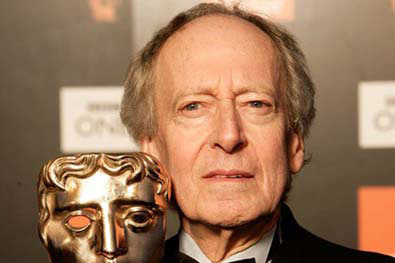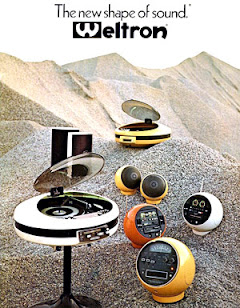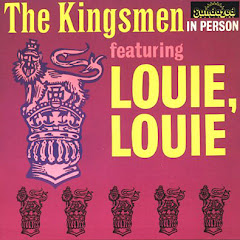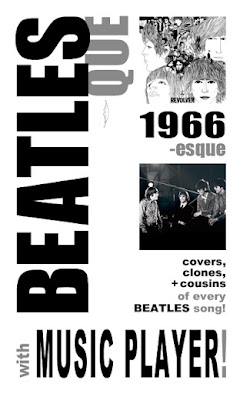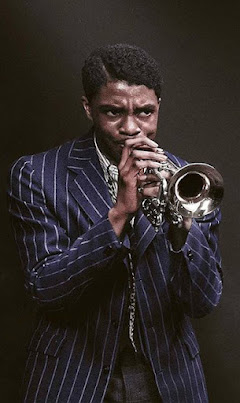JAMES BOND sound
influences decades of popular music
Music Players!
One life for yourself and one for your dreams."
The great film composer JOHN BARRY lives on doubly in the lifetime of great music he gave us and in the galaxy of artists who have homaged him for seven decades.
Here's two Music Players and essays to prize his sound and sing his praises.
Music Player Quick Links:
𝟭 •JOHN BARRY: a musical career overview
𝟮 • JOHN BARRY's Rock Disciples and the James Bond sound
Each Music Player is in chronological order, from the '50s to the present.
The music of
John Barry
by Tym Stevens
John Barry was the Man.
In the early-'60s he usurped Henry Mancini's mantle as the hip film composer of choice. Mancini had straddled an odd space between soothing sounds and hipster lounge culture. He could knock out the eerie lullaby of "Charade" or "The Days of Wine and Roses" for the straights, and crank out the tipsy joy of "Baby Elephant Walk" and the sly jazz of "The Pink Panther" for the fingerpoppers. But it was his score for the 1959 TV detective series, "Peter Gunn", that clued him to the youth. With its jazzy nocturnal strolls through the hardboiled cool of wet streets and nightclubs it gripped them by the scruff and the hips. It may even have undone him. A stringslinger named Duane Eddy, "the Twang Bar King", covered its theme as a Rock'n'Roll instrumental, surpassing the original so much that most folks think it is the original. It also became the prototype for Henry's emerging challenger.
John Barry was trying to make it in London as a bandleader of a combo that belted out Rockabilly, Swing Jazz and light Pop for dancehalls. He conducted by trumpet like jazzers but had an eye for the emerging phenomenon of Rock. As an arranger he could absorb the styles of the day and craft canny showpieces for his John Barry Seven. There's even a live album with teen girls squeeling at every brass blast-off. But there is already a sense that Pop was too limiting for him, that he had something grander to say and needed a new canvas to express it. The first indication came with a track called "Bees Knees", as the Seven's signature macho brass fanfares click with a hard clanging guitar lead. Soon, John discovered a guitarist named Vic Flick, whose ringing reverb crystallized the heart of where he was heading.
Their vehicle was the theme song for the 1960 British film, BEAT GIRL. This overlooked gem is the moment he became the Man. With Vic's terse tremolo, the jazz drums, and the striding tides of brass, it distills his future in a minute-and-forty-one seconds. Perfect. He continued to refine this sound on subsequent instrumentals, counterpointing Vic with pizzicato strings and trumpet codas.
And then the big break came. He was asked to supplement Monte Norman's calypso score for the first film based on a popular spy novel series. John created "The James Bond Theme" for the opening credits. Vic's guitar, straight out of the pioneering Rock of Duane Eddy and Surf king Dick Dale>, hit the screen and the audience like a full clip. It defined the flinty cool of Bond instantly, and assured Barry's ascension into the film pantheon. Though an obvious extension of his work on BEAT GIRL, to his chagrin the tune was eternally credited to Monte Norman(!). John had his restitution when he was selected to score the entirety of all the Bond films to follow. His sound proved more defining to the character than even the actors who would portray him. At last he had the outsized, sophisticated canvas he needed.
Until that time, film scores had been descendants of Classical music; big orchestras that underscored every moment of film with swelling eddies of sound. This began to change in the '50s with the increasingly experimental textures of Bernard Herrmann (Hitchcock's VERTIGO) and the pop savvy of Mancini. Barry synthesized these advances and intensified them. His was a world of strong, immediately memorable melodies reiterated as tonal themes, honed by his Pop days. He played with dynamics of silences, murmurings, and crescendos. There was an unapologetic boldness to his arrangements that was loud, sometimes abrasive, and triumphant. Very Rock'n'Roll, very Space Age, very erotic, very modern. He trysted dark cellos with crashing brass, merging Classical and Jazz into an edgy, elegant majesty, like "Bolero" meets "Harlem Nocturne". As locales changed in each Bond film he gleefully absorbed world musics into his arrangements. Here Koto strings, there Ragtime piano. Here delicate elegies, there screaming Clavioline organ. With the tensions of his sounds he captured the contemporary ambivalence about sensuality and violence, compassion and passion's folly. Mister Kiss Kiss Bang Bang.
John Barry's grip on the pulse of the times made him the Man. If he was the hero of the era, then Ennio Morricone was the anti-hero, the deconstruction worker inverting and subverting it all. But John had grip. He expanded into many sounds over many films while always maintaining his melodic and dark lustrous sensibility. In the latter end of his career, he made albums for himself of contemplative beauty or trinkling bebop, like someone who has done it so well he disn't have to prove anything to anyone but himself.
The Massive Influence Of
JOHN BARRY
by Tym Stevens
Hear the unlimited Playlist here.)
This Music Player contains seven decades of music influenced by John Barry, including:
Perez Prado • Kim Weston • The Beatles
Jimmy Smith • Eddie Harris • Eric Dolphy
Ennio Morricone • Johnny Cash • Edwin Starr
Johnny Rivers • Lalo Schifrin • Julie Driscoll
Desmond Dekker • Ray Barretto • Davie Allan
The Miracles • Dusty Springfield • Pink Floyd
The Byrds • The Bar-Kays • Isaac Hayes
Paul McCartney • Alice Cooper • Shocking Blue
Carly Simon • Monty Python • ABBA • Atlantics
The B-52's • The Selector • The Specials
Devo • The Go-Go's • Blondie • Goblin
New Order • The Cure • Stray Cats
Tina Turner • Chris Isaak • The Damned
Flaming Lips • Depeche Mode • The Delmonas
XTC • Sinead O'Connor • GBV • Lyres
Gladys Knight • John Zorn • Faith No More
Barry Adamson • Portishead • Pulp • U2
Magnetic Fields • Hooverphonic • Mono
David Holmes • Fatboy Slim • The Prodigy
Supergrass • April March • Moby • Bjork
Garbage • Massive Attack • Public Enemy
Green Day • Goldfrapp • Oasis • Beta Band
Coldplay • Michael Giacchino • Chris Joss
Nine Inch Nails • Dengue Fever • Muse
Chris Cornell • Adele • Siouxsie
Janelle Monae • Jack White • Alicia Keys
The Last Shadow Puppets • Nitzer Ebb
Cee-Lo Green • Anna Calvi • thenewno2
The Kills • Sharon Jones • Mark Lanegan
Lana Del Rey • Stereo Total • The Limananas
Adrian Younge • Bill Frisell • Iggy Pop
Chrysta Bell • Kandle • Billie Eilish
and many, many more!
Plus Movie and TV Theme Songs!
What does all this have to do with Rock, you ask? A great deal and much more.
Barry created a new kind of jet-age torch song for the Mod generation, which became hit pop songs. These bold songs required bold singers. Shirley Bassey set the standard for all to follow with a fearless blast on 1964's GOLDFINGER which easily matched his horn bombast. Tom Jones reportedly went so far for glory on THUNDERBALL that he nearly passed out holding that last triumphant note! But Barry could blow cool as well as hot, such as the serene calm Nancy Sinatra brought to the immortal YOU ONLY LIVE TWICE (1968). His declarative brass, slinky ballads, and aching melodies haunt everyone in his wake, beyond time or genre.
His dynamic crescendos especially set the standard for his rivals and successors. This defiantly over-the-top blast invigorated great scores and Rock songs. The breathless bravado of THE BIG GUNDOWN by rival Ennio Morricone owes as much to Barry as it does to Elmer Bernstein's galloping western scores, with singer Christy sounding like she's sprinting across the desert with a message burning her tongue. Paul McCartney brought real Rock swagger and some Reggae saunter into LIVE AND LET DIE (1972); the underrated score was actually by George Martin, but their inspiration was Barry's template. Chris Cornell, Public Enemy, Jack White, Alice Cooper, all have rocked out on the momentum of his piledriving cues.
The generation that grew up on these films and pop hits reflected it in the decades to come. John Barry's dynamic sound has seeded through Rock anthems, Pop ballads, HipHop samples, and TripHop headscapes. The attached music player above tours all of that by comparing John's songs to the songs that were inspired by him (and a few songs that inspired him first). Here's a checklist of the party guests...
ACTION!
Barry created the sound of action cinema for the entire decade.
The spy craze of the mid-'60s set off by Bond canonized Barry's sounds in countless theme songs. Movies like the MATT HELM and FLINT series, MODESTY BLAISE, FATHOM, and endless imitations worldwide. And TV shows like "The Avengers", "The Saint", "The Man and Girl From U.N.C.L.E.", "I Spy", "Danger Man (a.k.a., Secret Agent)", "The Prisoner", "Mission: Impossible", "Jonny Quest", "Lancelot Link", and "Get Smart". Even the modern descendants of these, such as "Alias", "The Venture Brothers", "Nikita", "Agents Of S.H.I.E.L.D.", "Archer", and "Killing Eve", retain the echoes of his touch.
SURF
The Surf guitar sound, paved by The Ventures, Duane Eddy, and Dick Dale, had inspired the hard guitar clang of the Bond theme. And in its wake, the Bond theme inspired an entire sub-genre of spy theme surf songs that continues to this day: you can hear in it The B-52s, Man Or Astro Man?, Laika And The Cosmonauts, The Mermen, and The Aqua Velvets.
GOLDEN GIRL
James Bond was so influential on mass culture that the spy sound pervaded general Pop. The brassy power of Barry and Bassey is especially intense in British Soul sirens, in songs like "The Silencers" by Patti Seymour, "Untrue, Unfaithful (That Was You)" by Nita Rossi, "I've Been Wrong Before" by Cilla Black, and "I Know You Love Me Not" by Julie Driscoll.
SOUL
James Bondage also shimmied through Soul music, with such hits as "Agent Double-O-Soul" by Edwin Starr, "Sock It To 'Em, J.B." by Rex Garvin, and namechecks in Shorty Long's "Function At the Junction".
THE BEATLES
The smash succcess of the Bond films transformed the British image into hyper-cool modernity overnight, and set the avalanche in motion for the British Invasion soon after. Because of this, there is a consistent connection between James Bond and The Beatles over the years.
• In GOLDFINGER (1964), Sean Connery makes a flip joke insulting them.
• An action sequence in The Beatles' HELP (1965) is underscored by a short orchestral burst imitating the Bond theme.
• When John Barry was too busy to score LIVE AND LET DIE (1972), the baton was picked up by Beatles producer George Martin who enlisted Paul McCartney for the theme. To his chagrin, the clueless film producers treated it like a demo and started casting about for a standard balladeer to sing it. Martin politely put his foot down. Paul's Oscar -nominated theme is one of the best-loved and most covered Bond themes ever.
• Barbara Bach reached international fame in THE SPY WHO LOVED ME (1977) and then married Ringo Starr. Carly Simon's sultry theme "Nobody Does It Better" for this film is firmly in the tradition of McCartney ballads like "My Love".
• "You Only Live Twice" was covered by an '80s Mod calling herself Eleanor Rigby.
• Showing there's no hard feelings, Sean Connery ended up narrating a version of "In My Life" on George Martin's retirement album.
• In QUANTUM OF SOLACE (2008) Bond meets a ginger agent who insists on being called Miss Fields; it's only on the end credits that we learn her first name is Strawberry.
HE LOVES ONLY GOLD
McCartney's theme was nominated for an Oscar and sold like crazy. The producers moved in the direction of dollars by enlisting the hottest artists of any given moment, like Sheena Easton, Rita Coolidge, Duran Duran, A-Ha, Madonna, Adele, and Sam Smith.
There are special stand-outs along the way. The Pretenders delivered two sadly unsung classics for THE LIVING DAYLIGHTS (1987) with "Where Has Everybody Gone" and "If There Was A Man". LICENSE TO KILL (1989) has an equally unheralded and soulful performance by Gladys Knight. Garbage was so into recreating Barry's signature sound that they made a brilliant spy video to accompany THE WORLD IS NOT ENOUGH (1999). Chris Cornell channels Bassey and Tom Jones in CASINO ROYALE (2006) with his "You Know My Name". Jack White and Alicia Keyes roar through "Another Way To Die" for QUANTUM OF SOLACE (2008). Adele invoked the ghost of Goldfinger in her majestic title song for SKYFALL (2012). Sam Smith followed suit with the soulful "Writing's On The Wall" for SPECTRE (2015). Billie Eilish crooned the title song for NO TIME TO DIE (2021).
MOONFINGER
Moon River ➤ Goldfinger ➤ Moonraker ➤ Goldeneye ➤ Goldmember
There's a funny pretzel loop involving the theme for GOLDFINGER (1964), immortalized by Shirley Bassey. At the time it was so noted for its sonic resemblance to Henry Mancini's "Moon River" that it was often called "Moonfinger". Later, John Barry scored the Bond film MOONRAKER (1979), which was perversely sung by Shirley Bassey. Bono and The Edge were clearly homaging "Goldfinger" in writing the theme for GOLDENEYE (1995), sung by Tina Turner in her best Bassey belt-out. Eventually the telephone game loses its mind. Though Austin Powers goes up against GOLDMEMBER (2002), the movie actually homages 70's action films; so Beyonce's theme completely loses the plot by combining two songs by KC And The Sunshine Band!
KISS BANG
When Bondmania hit, an Italian journalist nicknamed the lascivious spy 'Mr. Kiss Kiss Bang Bang'. Barry liked this phrase enough to create a song for THUNDERBALL (1965). It was meant for Shirley Bassey but then went to Dionne Warwick. The brass worried about a song lacking the film title, the Tom Jones theme was used instead, and Dionne's recording was released 30 years later. An Italian spy knock-off, "BACIA E SPARA" (1966) was renamed "Mr. Kiss Kiss Bang Bang" in American release, with a score by the great Bruno Nicolai. 'Kiss Kiss Bang Bang' has been used to name two comedies since, including the terrific noir spoof KISS KISS BANG BANG with Robert Downey Jr (2005). (When the director of that film reunited with Downey helming IRON MAN 3 (2013), the end credits were a direct homage to Maurice Binder's credits for Bond films.) It has also been the name of original songs by Nitzer Ebb, Specimen, The Celibate Rifles, and Cinerama. And a collection of film essays by Pauline Kael because it is "perhaps the briefest statement imaginable of the basic appeal of movies."
DR. NOPE
Many artists pitched great songs for Bond films that got rejected.
These were alternate original songs that are just as cool for their own sake; Johnny Cash's "THUNDERBALL", Alice Cooper's "THE MAN WITH THE GOLDEN GUN", Blondie's "FOR YOU EYES ONLY", Scott Walker's "Only Yourself To Blame" for THE WORLD IS NOT ENOUGH, and a raft of TOMORROW NEVER DIES original songs by Pulp, Saint Etienne, Marc Almond, The Cardigans, and Swan Lee.
And oftimes an artist makes a song in the vein of the Bond/ Barry sound just for their own pleasure. New Order's "Blue Monday" (1983) owes as much to Vic Flick's treble as to Duane Eddy. A particular unknown delight is Lori And The Chameleons' "The Lonely Spy" (1981). Artists continue to croon sultry ballads with dangerous mood, such as Serena Ryder, Lana Del Rey, Caro Emerald, Groovy Uncle, and especially Kandle.
COVER ME!
And then there's always a great cover version.
Just marvel at the terrific cover of "Goldfinger" by postpunk pioneers Magazine! "You Only Live Twice" has been done by Marc Almond, Coldplay, and Bjork, and sampled by Robbie Williams and Cee-Lo Green. John Barry was lucky to have his hero Louis Armstrong perform "We Have All the Time In the World" for ON HER MAJESTY'S SECRET SERVICE before his passing; this song has been covered by My Bloody Valentine, Fun Lovin' Criminals, and even a tender take by Iggy Pop. Arctic Monkeys and Kanye West have tried on "Diamonds Are Forever". The first cover of "Live and Let Die" was actually on its own soundtrack, with a Funky Soul version by B.J. Arnau; we see her performing it in a New Orleans bar in the film. Linda McCartney had suggested a Reggae middle section, which triggered a Reggae cover by Byron Lee And The Dragoniares, who had done Calypso songs for the first Bond film, DR. NO (1962). And it became the signature song of Guns'n'Roses. In Radiohead's cover of "Nobody Does It Better" they pronounced it the sexiest song ever written.
YOU ONLY LIVE TWICE
And then there's cloning.
Though Barry hasn't done the Bond music for decades, his hand-picked successor David Arnold has done near-flawless homages in recent years. Likewise, pastiches of Barry run through AUSTIN POWERS, brilliantly in Michael Giacchino's score for THE INCREDIBLES (2004) and THE INCREDIBLES 2 (2018), and David Holmes' score for HAYWIRE (2011).
NEVER SAY DIE
And then there's sampling.
Barry's riffs and moods have been sampled by Moby, Public Enemy, House Of Pain, and The Prodigy. Propellerheads took their whole Big Beat easthetic from Barry, even enlisting Shirley Bassey for their dance hit "History Repeating" (1998), as well as remixing an amped ON HER MAJESTY'S SECRET SERVICE. This earned them the clout to throwdown in the score for TOMORROW NEVER DIES (1997). Fatboy Slim took the key guitar riff of John's breakthrough "Beat Girl" as an essential part of his breakthrough, "The Rockefeller Skank". (♫ "Right about now, the Funk Soul Brother, check it out now..!" ♫)
DANCE INTO THE FIRE
And then there's TripHop.
In the '90s, Barry's atmospheric darkness and propulsive rhythms influenced a new wave of edgy dance music with cinematic arrangements. Many acts lopped under the TripHop umbrella took inspiration from film composers like Barry, Lalo Shifrin, Roy Budd, Angelo Badalamenti, and Ennio Morricone.
Portishead made their breakthrough with a longform video called "To Kill a Dead Man", which combined the style of Bond films with the anti-Bond grit of Michael Caine's 'Harry Palmer' spy series. Their sound sampled from the dark shadows of Barry and Shifren. Likewise, Mono's big hit "Life In Mono" uses the creepy harpsichord of Barry's THE IPCRESS FILE as its hook. Similarly, Goldfrapp, Barry Adamson, Tricky, Sneaker Pimps, Hooverphonic, David Holmes, Blue States, and Massive Attack have haunting refrains of Barry in their cinematic dance themes.
Triphop continued to flourish across time, such as the Bond-esque moodiness of Kandle, and Unloved's drmatic songs for the TV series 'Killing Eve' (2018).
And then there's the real thing. When Jarvis Cocker of Pulp curated the 2007 Meltdown Festival, he had a philharmonic night celebrating Barry, with both of them performing together. A proper tribute to a proper artist.
This sadly is the end of our hero, who passed away in 2011, but John Barry will return in another artist and composer dear to your heart. Until then, "Live one life for yourself/ And one for your dreams."
© Tym Stevens
See Also:
• THE PRISONER: Its Influence On Music, TV, and Comics, with Music Player
• JIM STERANKO, Agent of S.T.Y.L.E.! - His Inspirations and His Influence
• TWIN PEAKS: It's Influence On 25 Years of Popular Culture, with 5 Music Players
• How SPAGHETTI WESTERNS Revolutionized Rock Music! , with 3 Music Players
• How STAR WARS Is Changing Everything!
• John Barry > Fatboy Slim
• 20 Most Badass JAMES BOND Women!
• THE CANON 1: 50 Books That Created Modern Culture, with Music Player
• THE CANON 2: 50 More Books That Created Modern Pop Culture, with Music Player
• THE CANON 3: 50 Recent Books That Created Modern Culture, with Music Player







